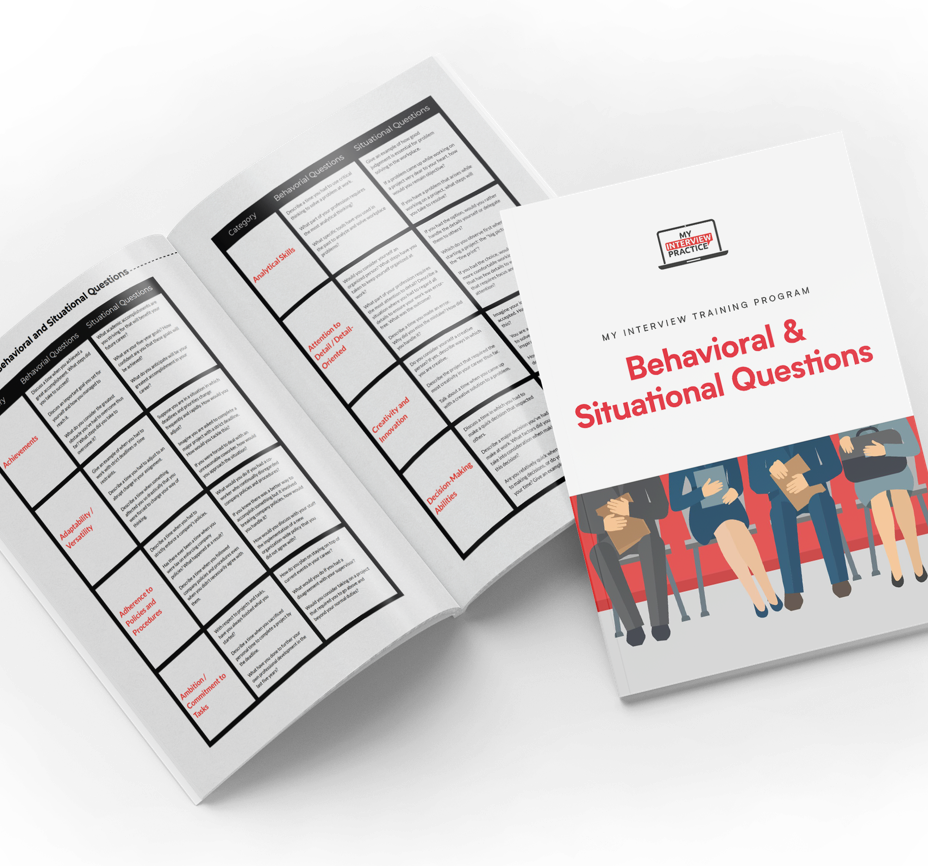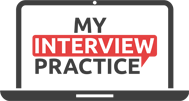“How Do You Handle Conflict” Interview Questions: An Interviewee’s Guide

Everyone experiences conflict in the workplace, whether it’s disagreeing with a coworker over priorities, clashing with a manager’s direction, or resolving an unhappy customer’s concerns. Because unresolved conflict can derail projects, harm morale, and drive up costs, hiring managers often probe your conflict resolution abilities. They want team players with strong interpersonal skills who can de-escalate tension, maintain collaboration, and deliver successful outcomes.
This article will provide top tips on how to prepare for interview questions about conflict at work. You’ll learn why employers ask these interview questions, how to structure your answers effectively, and see sample responses that showcase your ability to manage workplace disagreements and strengthen team dynamics.
“How Do You Handle Conflict” Interview Questions
The best way for employers to assess your conflict-management skills in a job interview is by asking you to recount real experiences. These conflict-related questions require you to tell a clear, organized story that explains your reasoning, the methods you used, and the results you achieved. Interviewers will note how you demonstrate your problem-solving skills:
-
Listen actively and respect different viewpoints
-
Clarify misunderstandings through effective communication
-
Negotiate or mediate to find common ground
-
Move past disagreement to keep the team focused on goals
They want to know that you can either avoid unnecessary conflict or resolve it quickly, fostering a collaborative environment and improving overall productivity.

Introduction to Conflict Resolution Skills
Conflict resolution skills enable professionals to navigate disagreements and challenging situations with poise. In an interview, demonstrating strong emotional intelligence and conflict resolution abilities shows that you can:
-
Manage stress without escalating tensions
-
Uses clear communication even when under pressure
-
Solve problems while preserving positive relationships
-
Turn conflict into an opportunity for process improvement
-
Resolve issues to avoid conflict in future and save valuable time
-
Set clear expectations in the workplace to avoid simple conflicts
When you answer conflict-related questions, provide specific examples that highlight your listening, empathy, problem-solving, and technical skills. This proves you’re not just a team player—you’re someone who values team members and builds strong teams.
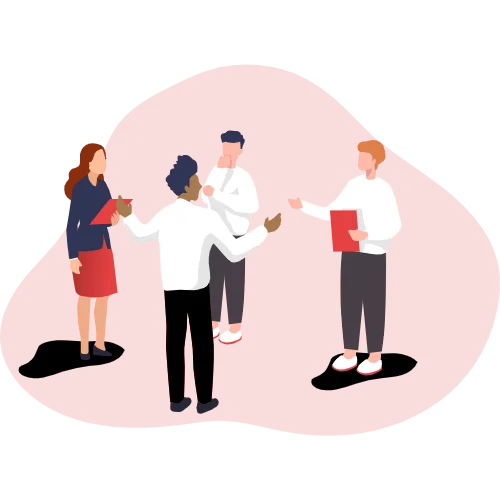
Understanding Workplace Conflict
Workplace conflict often arises from:
-
Differences in opinion or work style
-
Communication breakdowns and assumptions
-
Competing priorities or resource constraints
-
Personality clashes or cultural misunderstandings
Recognize that conflict at work is a natural part of any organization. When handled well, it can surface process gaps and spark innovation. Approaching disputes with empathy, active listening, and a focus on shared goals helps you resolve conflicts and transform tension into teamwork.
Compromise is often necessary when resolving workplace conflicts to ensure mutually beneficial outcomes.
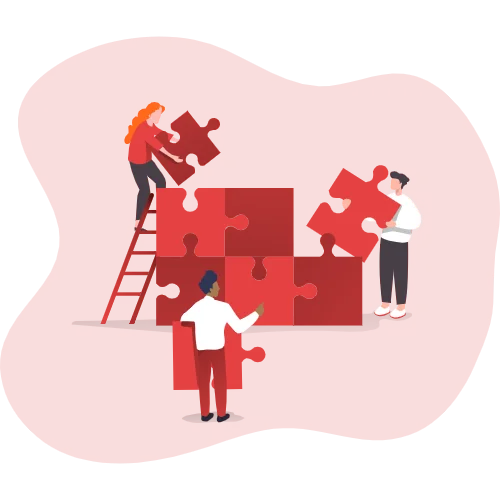
How to Answer Conflict Interview Questions in a Job Interview
If you anticipate conflict interview questions and are prepared to answer them with good examples, you will find it easy to respond to these questions during an interview. Professionals regularly encounter conflict and need to manage it effectively. We offer additional training on how to appropriately address situational questions here.
Hiring managers often look for accountability, poise, professionalism, and relevant technical skills when candidates answer conflict-related questions.
Conflict-related questions can be responded to using the STAR method. This helps you organize your response by creating a story related to the question. In behavioral interviewing, inquiries into past projects and experiences help predict future behavior, which is crucial during job interviews.
The STAR Method uses the following framework:
-
Situation – Briefly describe a situation related to the question. Make sure the situation you use is connected to the type of conflict the interviewer asked you about.
-
Task – Summarize the task or goal you needed to achieve. Describe how managing the conflict would help resolve an issue or accomplish an objective.
-
Action – Talk about the actions you took to accomplish the task or goal. They should focus on the steps you took to resolve the conflict at work and move on to addressing the issue at hand or the task that needed to be completed.
-
Results – Discuss the results you achieved and the impact they had on the organization. Illustrate how your ability to handle conflicts contributed to creating an environment in which everyone worked toward the same objective.
When preparing for an interview, you should anticipate this type of question and have your STAR stories ready. The stories you relate should be relevant to the position for which you are interviewing, so they resonate with the manager.
Preparing a structured approach in advance and rehearsing it before the interview will give you confidence. It will also enable you to respond to the interviewer’s questions by providing compelling stories and communicating them clearly and expertly, and edge out other applicants.
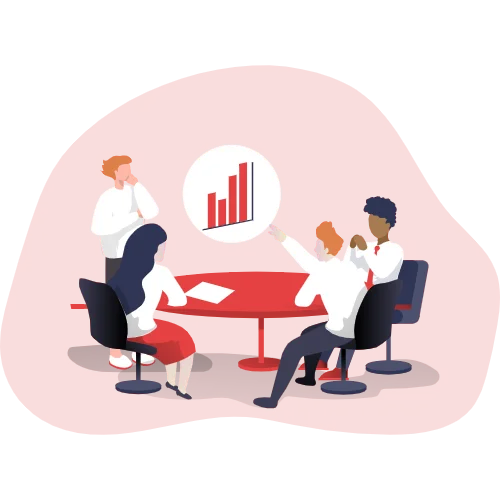
Examples of Conflict Interview Questions
Here are some examples of conflict-based behavioural questions you can anticipate during an interview, the rationale behind them, and an example of how you can respond to them.
1. Tell me about a time you had to handle disagreements or deal with a conflict at work
This interview question assesses how you handle workplace conflict and navigate interpersonal disagreements without derailing projects or damaging team morale. Provide examples of how you did it in past experiences.
Example: “Early in my last role, a coworker and I were tasked with redesigning our document-management process under a tight deadline. We disagreed on whether to build on the existing system or start from scratch. Rather than argue, I asked to meet one-on-one to understand their concerns. I listened to their ideas, shared my own rationale, and proposed combining our approaches: we’d reuse stable components and streamline the rest. By the end of the meeting, we agreed on a hybrid solution. We delivered the new process on time, and within six months document errors dropped by 25% while productivity rose.”
2. Can you explain how you managed a situation when you disagreed with your manager?
Hiring managers want innovators who also respect authority. This question gauges your problem-solving skills to arrive at a solution that respects different opinions while aligning with both your manager’s priorities and the organization’s goals.
Example: “On one project, my manager challenged the assumptions behind my market-analysis report just before a client pitch. I asked for a private meeting to understand their concerns. I actively listened, then walked through my data sources and methodology. Together, after careful consideration we identified a minor adjustment that addressed their feedback without sacrificing key insights. The revised presentation resonated with stakeholders, and my manager later praised our collaborative approach.”
3. Explain a time when you were working on a team project in a previous position and one member was impeding progress
Interviewers ask this to see how you handle disagreements in a disruptive team dynamic, and whether you can address the issue privately, empowering everyone to contribute effectively to successful projects.
Example: “In a cross-functional initiative to reduce workplace accidents, one member repeatedly dismissed others’ ideas in group sessions, stalling progress. After the next meeting, I spoke with them privately, acknowledged their expertise, and suggested we try a round-robin brainstorming format so every voice could be heard. They agreed, participation improved immediately, and we met our project milestones two weeks ahead of schedule. In the year following implementation, accidents dropped by over 50%.”
4. Describe your approach to working with a group of diverse coworkers who have different backgrounds and opinions?
Employers value cultural agility and inclusivity. They ask this to determine whether you can build rapport across differences, respect various perspectives, and leverage diversity to achieve stronger team outcomes.
Example: “My teams have always been culturally and professionally diverse. I start by showing genuine respect for each person’s background—asking open-ended questions about their experiences and listening closely. In one global project, I created brief ‘culture share’ sessions where each member highlighted one best practice from their country. This built mutually beneficial understanding and inspired process improvements drawn from multiple perspectives. As a result, our final solution was more robust and well-received by international stakeholders.”
5. Describe your methodology for helping multiple people resolve a work conflict.
Your response should explain your ability to act as an impartial mediator, helping interviewers know that you can guide colleagues through structured problem-solving.
Example: “In my previous role, I earned a reputation as a peacemaker because I often helped settle disputes. My approach is to first listen to each person’s perspective without interruption, then restate their main points to confirm understanding. Next, I facilitate a joint discussion where we brainstorm solutions and agree on next steps.
For instance, I helped two analysts settle a resource-allocation dispute by mediating their conversation, suggesting compromises, and securing written agreements. The outcome was a clear plan both could support, and team members’ cohesion improved significantly.”
6. Give an example of when you had to respond to an unhappy customer and the steps you took to satisfy them
Interviewers ask this to evaluate your customer-service skills under pressure and your ability to turn a negative situation into a positive outcome. They want to see how you communicate effectively by listening, empathising, and following through to restore satisfaction and maintain the organisation’s reputation.
Example: “In my previous role as support lead, a long-time client called furious about a delayed shipment that threatened their deadline. I calmly listened to their concerns, apologised for the inconvenience, and assured them I would resolve the issue. I traced the order, discovered a warehouse error, and arranged express delivery at no extra cost. I then followed up daily until they confirmed receipt. The client thanked me for taking ownership and renewed their contract for another year.”

Effective Communication in Conflict Resolution
Effective communication is critical in conflict resolution, as it enables individuals to express their needs, concerns, and opinions clearly and respectfully.
So, how do you handle conflict interview question? In a job interview, being able to discuss your experience with open communication in conflict resolution can be an excellent way to demonstrate your interpersonal skills, emotional intelligence, and ability to work effectively in an organization. By showcasing your ability to communicate effectively in conflict situations, you can demonstrate your value as a professional and a valuable asset to the organization.
How to Answer Conflict Interview Questions in a Job Interview
If you anticipate conflict interview questions and are prepared to answer them with good examples, you will find it easy to respond to these questions during an interview. Professionals regularly encounter conflict and need to manage it effectively. We offer additional training on how to appropriately address situational questions here.
Hiring managers often look for accountability, poise, professionalism, and relevant technical skills when candidates answer conflict-related questions.
Conflict-related questions can be responded to using the STAR method. This helps you organize your response by creating a story related to the question. In behavioral interviewing, inquiries into past projects and experiences help predict future behavior, which is crucial during job interviews.
The STAR Method uses the following framework:
-
Situation – Briefly describe a situation related to the question. Make sure the situation you use is connected to the type of conflict the interviewer asked you about.
-
Task – Summarize the task or goal you needed to achieve. Describe how managing the conflict would help resolve an issue or accomplish an objective.
-
Action – Talk about the actions you took to accomplish the task or goal. They should focus on the steps you took to resolve the conflict at work and move on to addressing the issue at hand or the task that needed to be completed.
-
Results – Discuss the results you achieved and the impact they had on the organization. Illustrate how your ability to handle conflicts contributed to creating an environment in which everyone worked toward the same objective.
When preparing for an interview, you should anticipate this type of question and have your STAR stories ready. The stories you relate should be relevant to the position for which you are interviewing, so they resonate with the manager.
Preparing a structured approach in advance and rehearsing it before the interview will give you confidence. It will also enable you to respond to the interviewer’s questions by providing compelling stories and communicating them clearly and expertly, and edge out other applicants.

Examples of Conflict Interview Questions
Here are some examples of conflict-based behavioural questions you can anticipate during an interview, the rationale behind them, and an example of how you can respond to them.
1. Tell me about a time you had to handle disagreements or deal with a conflict at work
This interview question assesses how you handle workplace conflict and navigate interpersonal disagreements without derailing projects or damaging team morale. Provide examples of how you did it in past experiences.
Example: “Early in my last role, a coworker and I were tasked with redesigning our document-management process under a tight deadline. We disagreed on whether to build on the existing system or start from scratch. Rather than argue, I asked to meet one-on-one to understand their concerns. I listened to their ideas, shared my own rationale, and proposed combining our approaches: we’d reuse stable components and streamline the rest. By the end of the meeting, we agreed on a hybrid solution. We delivered the new process on time, and within six months document errors dropped by 25% while productivity rose.”
2. Can you explain how you managed a situation when you disagreed with your manager?
Hiring managers want innovators who also respect authority. This question gauges your problem-solving skills to arrive at a solution that respects different opinions while aligning with both your manager’s priorities and the organization’s goals.
Example: “On one project, my manager challenged the assumptions behind my market-analysis report just before a client pitch. I asked for a private meeting to understand their concerns. I actively listened, then walked through my data sources and methodology. Together, after careful consideration we identified a minor adjustment that addressed their feedback without sacrificing key insights. The revised presentation resonated with stakeholders, and my manager later praised our collaborative approach.”
3. Explain a time when you were working on a team project in a previous position and one member was impeding progress
Interviewers ask this to see how you handle disagreements in a disruptive team dynamic, and whether you can address the issue privately, empowering everyone to contribute effectively to successful projects.
Example: “In a cross-functional initiative to reduce workplace accidents, one member repeatedly dismissed others’ ideas in group sessions, stalling progress. After the next meeting, I spoke with them privately, acknowledged their expertise, and suggested we try a round-robin brainstorming format so every voice could be heard. They agreed, participation improved immediately, and we met our project milestones two weeks ahead of schedule. In the year following implementation, accidents dropped by over 50%.”
4. Describe your approach to working with a group of diverse coworkers who have different backgrounds and opinions?
Employers value cultural agility and inclusivity. They ask this to determine whether you can build rapport across differences, respect various perspectives, and leverage diversity to achieve stronger team outcomes.
Example: “My teams have always been culturally and professionally diverse. I start by showing genuine respect for each person’s background—asking open-ended questions about their experiences and listening closely. In one global project, I created brief ‘culture share’ sessions where each member highlighted one best practice from their country. This built mutually beneficial understanding and inspired process improvements drawn from multiple perspectives. As a result, our final solution was more robust and well-received by international stakeholders.”
5. Describe your methodology for helping multiple people resolve a work conflict.
Your response should explain your ability to act as an impartial mediator, helping interviewers know that you can guide colleagues through structured problem-solving.
Example: “In my previous role, I earned a reputation as a peacemaker because I often helped settle disputes. My approach is to first listen to each person’s perspective without interruption, then restate their main points to confirm understanding. Next, I facilitate a joint discussion where we brainstorm solutions and agree on next steps.
For instance, I helped two analysts settle a resource-allocation dispute by mediating their conversation, suggesting compromises, and securing written agreements. The outcome was a clear plan both could support, and team members’ cohesion improved significantly.”
6. Give an example of when you had to respond to an unhappy customer and the steps you took to satisfy them
Interviewers ask this to evaluate your customer-service skills under pressure and your ability to turn a negative situation into a positive outcome. They want to see how you communicate effectively by listening, empathising, and following through to restore satisfaction and maintain the organisation’s reputation.
Example: “In my previous role as support lead, a long-time client called furious about a delayed shipment that threatened their deadline. I calmly listened to their concerns, apologised for the inconvenience, and assured them I would resolve the issue. I traced the order, discovered a warehouse error, and arranged express delivery at no extra cost. I then followed up daily until they confirmed receipt. The client thanked me for taking ownership and renewed their contract for another year.”

Effective Communication in Conflict Resolution
Effective communication is critical in conflict resolution, as it enables individuals to express their needs, concerns, and opinions clearly and respectfully.
So, how do you handle conflict interview question? In a job interview, being able to discuss your experience with open communication in conflict resolution can be an excellent way to demonstrate your interpersonal skills, emotional intelligence, and ability to work effectively in an organization. By showcasing your ability to communicate effectively in conflict situations, you can demonstrate your value as a professional and a valuable asset to the organization.
How to Answer Conflict Interview Questions in a Job Interview
If you anticipate conflict interview questions and are prepared to answer them with good examples, you will find it easy to respond to these questions during an interview. Professionals regularly encounter conflict and need to manage it effectively. We offer additional training on how to appropriately address situational questions here.
Hiring managers often look for accountability, poise, professionalism, and relevant technical skills when candidates answer conflict-related questions.
Conflict-related questions can be responded to using the STAR method. This helps you organize your response by creating a story related to the question. In behavioral interviewing, inquiries into past projects and experiences help predict future behavior, which is crucial during job interviews.
The STAR Method uses the following framework:
-
Situation – Briefly describe a situation related to the question. Make sure the situation you use is connected to the type of conflict the interviewer asked you about.
-
Task – Summarize the task or goal you needed to achieve. Describe how managing the conflict would help resolve an issue or accomplish an objective.
-
Action – Talk about the actions you took to accomplish the task or goal. They should focus on the steps you took to resolve the conflict at work and move on to addressing the issue at hand or the task that needed to be completed.
-
Results – Discuss the results you achieved and the impact they had on the organization. Illustrate how your ability to handle conflicts contributed to creating an environment in which everyone worked toward the same objective.
When preparing for an interview, you should anticipate this type of question and have your STAR stories ready. The stories you relate should be relevant to the position for which you are interviewing, so they resonate with the manager.
Preparing a structured approach in advance and rehearsing it before the interview will give you confidence. It will also enable you to respond to the interviewer’s questions by providing compelling stories and communicating them clearly and expertly, and edge out other applicants.

Examples of Conflict Interview Questions
Here are some examples of conflict-based behavioural questions you can anticipate during an interview, the rationale behind them, and an example of how you can respond to them.
1. Tell me about a time you had to handle disagreements or deal with a conflict at work
This interview question assesses how you handle workplace conflict and navigate interpersonal disagreements without derailing projects or damaging team morale. Provide examples of how you did it in past experiences.
Example: “Early in my last role, a coworker and I were tasked with redesigning our document-management process under a tight deadline. We disagreed on whether to build on the existing system or start from scratch. Rather than argue, I asked to meet one-on-one to understand their concerns. I listened to their ideas, shared my own rationale, and proposed combining our approaches: we’d reuse stable components and streamline the rest. By the end of the meeting, we agreed on a hybrid solution. We delivered the new process on time, and within six months document errors dropped by 25% while productivity rose.”
2. Can you explain how you managed a situation when you disagreed with your manager?
Hiring managers want innovators who also respect authority. This question gauges your problem-solving skills to arrive at a solution that respects different opinions while aligning with both your manager’s priorities and the organization’s goals.
Example: “On one project, my manager challenged the assumptions behind my market-analysis report just before a client pitch. I asked for a private meeting to understand their concerns. I actively listened, then walked through my data sources and methodology. Together, after careful consideration we identified a minor adjustment that addressed their feedback without sacrificing key insights. The revised presentation resonated with stakeholders, and my manager later praised our collaborative approach.”
3. Explain a time when you were working on a team project in a previous position and one member was impeding progress
Interviewers ask this to see how you handle disagreements in a disruptive team dynamic, and whether you can address the issue privately, empowering everyone to contribute effectively to successful projects.
Example: “In a cross-functional initiative to reduce workplace accidents, one member repeatedly dismissed others’ ideas in group sessions, stalling progress. After the next meeting, I spoke with them privately, acknowledged their expertise, and suggested we try a round-robin brainstorming format so every voice could be heard. They agreed, participation improved immediately, and we met our project milestones two weeks ahead of schedule. In the year following implementation, accidents dropped by over 50%.”
4. Describe your approach to working with a group of diverse coworkers who have different backgrounds and opinions?
Employers value cultural agility and inclusivity. They ask this to determine whether you can build rapport across differences, respect various perspectives, and leverage diversity to achieve stronger team outcomes.
Example: “My teams have always been culturally and professionally diverse. I start by showing genuine respect for each person’s background—asking open-ended questions about their experiences and listening closely. In one global project, I created brief ‘culture share’ sessions where each member highlighted one best practice from their country. This built mutually beneficial understanding and inspired process improvements drawn from multiple perspectives. As a result, our final solution was more robust and well-received by international stakeholders.”
5. Describe your methodology for helping multiple people resolve a work conflict.
Your response should explain your ability to act as an impartial mediator, helping interviewers know that you can guide colleagues through structured problem-solving.
Example: “In my previous role, I earned a reputation as a peacemaker because I often helped settle disputes. My approach is to first listen to each person’s perspective without interruption, then restate their main points to confirm understanding. Next, I facilitate a joint discussion where we brainstorm solutions and agree on next steps.
For instance, I helped two analysts settle a resource-allocation dispute by mediating their conversation, suggesting compromises, and securing written agreements. The outcome was a clear plan both could support, and team members’ cohesion improved significantly.”
6. Give an example of when you had to respond to an unhappy customer and the steps you took to satisfy them
Interviewers ask this to evaluate your customer-service skills under pressure and your ability to turn a negative situation into a positive outcome. They want to see how you communicate effectively by listening, empathising, and following through to restore satisfaction and maintain the organisation’s reputation.
Example: “In my previous role as support lead, a long-time client called furious about a delayed shipment that threatened their deadline. I calmly listened to their concerns, apologised for the inconvenience, and assured them I would resolve the issue. I traced the order, discovered a warehouse error, and arranged express delivery at no extra cost. I then followed up daily until they confirmed receipt. The client thanked me for taking ownership and renewed their contract for another year.”

Effective Communication in Conflict Resolution
Effective communication is critical in conflict resolution, as it enables individuals to express their needs, concerns, and opinions clearly and respectfully.
So, how do you handle conflict interview question? In a job interview, being able to discuss your experience with open communication in conflict resolution can be an excellent way to demonstrate your interpersonal skills, emotional intelligence, and ability to work effectively in an organization. By showcasing your ability to communicate effectively in conflict situations, you can demonstrate your value as a professional and a valuable asset to the organization.
The key to nailing your interview – practice, practice, practice.
As with anything, practice makes perfect. The most common ways to practice are with in-person mock interviews or a list of questions. While these options are a great place to start, they can leave a lot to be desired.
Practicing with In-Person Mock Interviews and Question Lists
One way to get valuable interview practice is to set up in-person mock interviews. Unfortunately, they can be somewhat inconvenient. You have to find someone to conduct the mock interview, and schedule a meeting every time you want to practice.
Question lists offer a much more convenient way to practice interviewing. Unfortunately, they do little to recreate actual interview pressure. In a real interview you’ll never know what’s going to be asked and this is exactly what can make interviews so stressful.
Interview Simulators – The best of both worlds.
With interview simulators, you can take realistic mock interviews on your own, from anywhere.
My Interview Practice offers a dynamic simulator that generates unique questions every time you practice, ensuring you're always prepared for the unexpected. Our AI-powered system can create tailored interviews for any job title or position. Simply upload your resume and a job description, and you'll receive custom-curated questions relevant to your specific role and industry. Each question is crafted based on real-world professional insights, providing an authentic interview experience. Practice as many times as you need to build your confidence and ace your next interview.
| List of Questions |
In-Person Mock Interview |
My Interview Practice Simulator |
|
|---|---|---|---|
| Questions Unknown Like Real Interviews | |||
| Curated Questions Chosen Just for You | |||
| No Research Required | |||
| Share Your Practice Interview | |||
| Do It Yourself | |||
| Go At Your Own Pace | |||
| Approachable |
Our interview simulator uses video to record your responses, and recreates the pressure you would feel in a real interview. This also allows your to see how you perform and perfect your responses. You can then share your responses with colleagues and mentors so that you can get valuable feedback.
Get the free training guide.
See the most common questions in every category assessed by employers and be ready for anything.
Get the Guide

